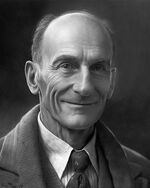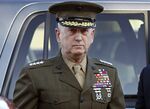Premier of the Federation of Ottonian Republics
| Premier of Federation of Ottonian Republics | |
|---|---|
 Flag of North Ottonia | |
| Style | His Excellency (formal, international correspondence) |
| Term length | 3 years, renewable up to six times for a total of 21 years |
| Inaugural holder | Harald Baltrsun September 21st, 1922 |
| Formation | New Foundation of Ottonia, effective 1 January, 1950 |
| Salary | Ø31,300,000 annually |
The Premiership is the highest office in the Federation of Ottonian Republics, serving as the chief executive of the Federation, charged with enforcing and implementing the law as passed by the federal legislature, known as the Folksmoot. Despite this nominal separation of power, the Ottonian premier has typically had significant de facto legislative power, using executive orders and other measures to both make and enforce laws. Still, a Premier acting without at least the tacit consent of the Folksmoot can quickly find themselves boxed-in by the legislature, thus representing a significant constraint on an executive who wishes to act unilaterally.
The Premier is the commander-in-chief of the Ottonian Federal Defense Service and the Ottonian Guard Service, and serves as the nation's chief diplomat and performs the ceremonial functions of a head of state. They are also required to sign all acts of the Folksmoot into law, and as a result also have the ability to veto legislation. The Premier is considered to have a bully pulpit and, despite not having any actual legislative powers of their own, is often influential in the legislature due to their duties in signing acts into law, as well as the public support they represent.
The current Premier is Junn Andrsunn.
Selection and Election
The Premier is elected every 3 years, with each term beginning in January. The process by which the Premier is elected involves a nominating election for the parties in the year leading up to the election (to have their candidates set no later than 1 September of the election year, barring unforeseen emergencies such as a candidate becoming incapacitated by illness or death), a direct national election on the first Monday of October, and the Premier-elect's approval by the Folksmoot in November.
The last part of the process can potentially derail an election; the Folksmoot's approval is required for a Premier to take office, although the actual mechanism is that the Premier will assume office on 2 January of the year they are elected unless a 65% supermajority of the Folksmoot votes to block their inauguration. In practice, the Folksmoot has never had to deny office to a Premier-elect, but the mechanism exists as a check should the general public attempt to elect an egregiously unsuitable person to the Premiership. In the event that a Premier-elect were to be blocked from office by the Folksmoot, the Chancellor at the time would assume the duties of the Premier for a period of 30 days, during which the election would be held again. The party of the blocked Premier-elect would have to choose to either run a different candidate, or withdraw entirely, as blockage by the Folksmoot would render the blocked Premier-elect ineligible to assume the Premiership for 3 years.
All registered political parties are permitted to advance a candidate for the Premiership, although in practice it is common for coalitions of parties to compromise on candidates as part of a slate of candidates for different positions.
Each term for the Premier lasts for 3 years; a person may serve up to 7 terms as Premier (consecutively or non-consecutively), for a maximum of 21 years, although in practice it is rare for a Premier to serve more than 4 or 5 terms.
Duties & Powers
Officially, the Premier is the Federation's chief diplomat, commander-in-chief of the armed forces, and the head of state and government. They are charged with enforcing the law as written and passed by the Folksmoot. They are permitted to declare states of emergency, mobilize national assets (military and civilian) in times of crisis, and mediate disputes between states. They also are generally considered to be the head of the national bureaucracy, although in reality this status is more complicated.
The Premier is tasked with signing all acts of the Folksmoot into law; the Premier's assent is the final stamp of approval allowing an act of the Folksmoot to become an active law. The Premier can also veto legislation, and this is an explicit act that the Premier must make. A veto sends an act back to the legislature, who then have the opportunity to modify the law, attempt to pass it as-is with a 65% supermajority (which will override the veto), or allow the act to die. Premiers also have a "soft veto" which they can use to request changes to the would-be law by refusing to give it assent, although this has been hampered by a 1994 Constitutional amendment that made it so that after 90 days on the Premier's desk, an un-signed and un-vetoed act of the legislature automatically becomes law anyway.
The Premier is also required to approve the Folksmoot's appointments to the Directorate, the executive council of the country. The Premier can revoke their approval of these appointments to force out a Director and demand a new appointment from the Folksmoot.
List of Premiers of Ottonia
Color key: Federalist Alliance National Front Popular Front
| No. | Portrait | Name (Born-Died) |
Term of office | Faction/Party |
|---|---|---|---|---|
| 1 | 
|
Harald Baltrsun (1892 - 1965) |
(1950 - 1958) | Democratic Consensus (PODA/UPP) |
| The country's first Premier was part of the leadership of the United Front during the Great Ottonian War and of the Popular Front during the North Ottonian Revolution, as well as a survivor of the worst of the Great Ottonian War and a long-time labor activist and Dunnmaar city councilor. After fifteen years of turmoil and upheaval, Baltrsun's steady presence, comforting demeanor, and affable personality helped create a stable, functional government to set the precedent for the New Foundation era, as well as to keep the country calm and deliver a firm defense and counter-attack when the South Ottonian Klausunn regime invaded the eastern territories in the winter of 1955 to 1956. In the 1958 elections, Baltrsun opted not to seek reelection, and instead supported his popular deputy, Eleonur Hendrsun for the PODA premiership nomination. | ||||
| 2 | 
|
Eleonur Hendrsun (1914 - 1993) |
(1959 - 1973) | Democratic Consensus (PODA/AOPP) |
| Eleonur Hendrsun had been one of the standout members of the Baltrsun-and-PODA-led Directorate of 1950-1959, serving at various times as the Director of Housing, the Director of Education, and the Director of Health, achieving excellent results in directing the reforms of the first decade of the FOR's existence, and becoming quite popular with the public, especially as rationing lessened and the country started a march towards prosperity. This, along with your youthful, photogenic image, helped her capture PODA's nomination for the Premiership (with the help of her friend and mentor in Baltrsun) in the 1958 election, and then ride that popularity and PODA's general electoral goodwill to the Premiership proper.
As Premier, Hendrsun would oversee the continued molding of the FOR into a democratic socialist state, establishing a competent and responsive bureaucracy, the easing of tensions between ethnic and religious sectarian groups, and the blooming of North Ottonian civil society. Hendrsun's particularly hands-on role in establishing North Ottonia's robust social safetynets and models of democratic participation would in particular endear her to the general public, and even though Hendrsunn would be defeated in the 1973 election (as would PODA as a whole), her place as an adored public figure and elder statesman for the country had been secured. Arguably no other Premier would command the same personal adoration as Hendrsun from the public. | ||||
| 3 | [[File:|150px]] | Ruger Smyth (1935 - 2010) |
(1974 - 1976) | Revolutionary Front (AOPP/PDP) |
| As the growth of the postwar recovery started to slow down and South Ottonia appeared to be on its back foot, a clamor for taking the fight to the old enemy, as well as carrying the ideals of the North Ottonian Revolution abroad more generally, combined with the fragmentation of PODA's big-tent Democratic Consensus coalition, created an opening for the more radical AOPP and PDP to form a coalition and push the young ideoleague Smyth for the Premiership.
Smythe, unfortunately, was relatively inexperienced in high-level politics and, more importantly, in management, and it showed in a generally sloppier administration than the North Ottonian public had become accustomed to under Baltrsun & Hendrsun's administrations. This, combined with the economic lag worsening (largely as a simple result of the slowdown of rebuilding; there was simply less building and producing to do, and it had consequences for the economy) tarnished Smyth's public image, and resulted in the Revolutionary Front coalition of the AOPP & PDP only holding a majority and the Premiership for a single term; Smyth would suffer an electoral drubbing, and infighting would only worsen the Front's position, resulting in a major shift of North Ottonia's electoral politics. | ||||
| 4 | [[File:|150px]] | [[]] ( - ) |
(1977 - 1982) | Reform Movement |
| 5 | [[File:|150px]] | [[]] ( - ) |
(1983 - 1991) | Reform Movement |
| 6 | 
|
Anders U'Daanyl (1930 - 2021) |
(1992 - 2000) | Popular Front |
| 7 | [[File:|150px]] | Alicia Rodrigus (b. 6/18/1956) |
(2001 - 2009) | National Front |
| 8 | [[File:|150px]] | Sofya Rudulf (b. 10/29/1968) |
(2010 - 2018) | Popular Front |
| 9 | [[File:|150px]] | Junn Andrsunn (b. 2/7/1974) |
(2019 - present) | |
| 10 | [[File:|150px]] | [[]] ( - ) |
( - ) | |